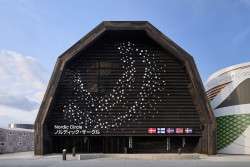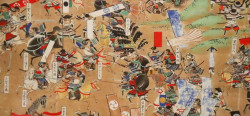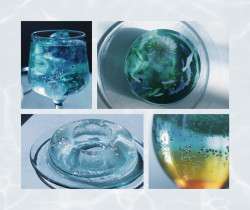
Originally published on metropolis.co.jp on August 2013
SIC TRANSIT
- A woman was injured at Shin-Koiwa station when a suicidal man jumped in front of an approaching Narita Express train and was hurtled back onto the platform.
- Hundreds of commuters—your correspondent included—were forced to evacuate their trains and walk down the tracks after the Toyoko line went FUBAR late last month during a violent rainstorm.
- Officials in Tsukuba, Ibaraki Prefecture, donated 64 bicycles to the people of Malawi, where, it is said, “locals often carry the sick on their backs to hospitals.”
- The head of spacecraft development at JAXA says the Kounotori unmanned resupply vessel could help pave the way for “a Japanese crewed space flight.”
THE FUNGUS AMONG US
- Scientists have determined that a type of caterpillar fungus discovered in a village in Fukushima in 2005 belongs to a heretofore unknown species.
- Researchers at the National Center of Neurology and Psychiatry have figured out a way of judging “whether someone is a night person by [analyzing] skin cells.”
- The smarty-pants at the RIKEN BioResource Center in Ibaraki have succeeded in cloning a mouse “from a single drop of blood.”
- Author Koji Suzuki (Ring) won the 2012 Shirley Jackson Award for his novel Edge. The US prize is given to works in the fields of “psychological suspense, horror and dark fantasy.”
HERE & THERE
- Craftspeople in northeastern Japan have teamed with luxury Italian brand Gucci to create a line of handbags featuring a traditional silk fabric called Sendai-hira. The totes will sell for a cool ¥420,000 apiece.
- Officials at the labor ministry are considering a plan to increase benefits for men who take paternity leave. Currently, fewer than 2 percent of dads take time off from work to help care for their newborns.
- Japanese scientists have succeeded in mapping the genome of the Pacific bluefin tuna. It’s hoped the breakthrough will “improve tuna farming technology.”
- Meanwhile, researchers in Nagoya have identified a gene in mice “that plays an important role in curbing obesity.”
WAR STORIES
- A Japanese playwright is set to debut a work about soldiers who “who spent two years hiding in a tree in Okinawa” in the latter days of WWII.
- A group of Japanese-Americans who were forced to live in US internment camps during the war staged a play in Hiroshima about their experiences.
- Victims of the US air raids on Tokyo in 1945 are pushing lawmakers to pass legislation authorizing the government to grant them compensation.
- Officials at the defense ministry say Chinese warships passed through the Soya Strait, which lies between Hokkaido and the Russian island of Sakhalin, for the very first time.
AND FINALLY…
- A police officer in Osaka came up with a novel way of reducing the official crime rate in his precinct: He systematically omitted thousands of cases in his reports.
- Cops in Taito-ku busted two men for operating a prostitution ring that specialized in older women. The average age of the brothers’ sex workers was 63, and the oldest was a 73-year-old pensioner.
- Bottom Story of the Week: “Amateur Photographer Captures Moment of Male Seahorse Giving Birth” (via Mainichi Japan)
Compiled from reports by AP, Japan Today, The Japan Times, Jiji, The Tokyo Reporter, The Mainichi, The Japan News, AFP, Reuters and Kyodo








